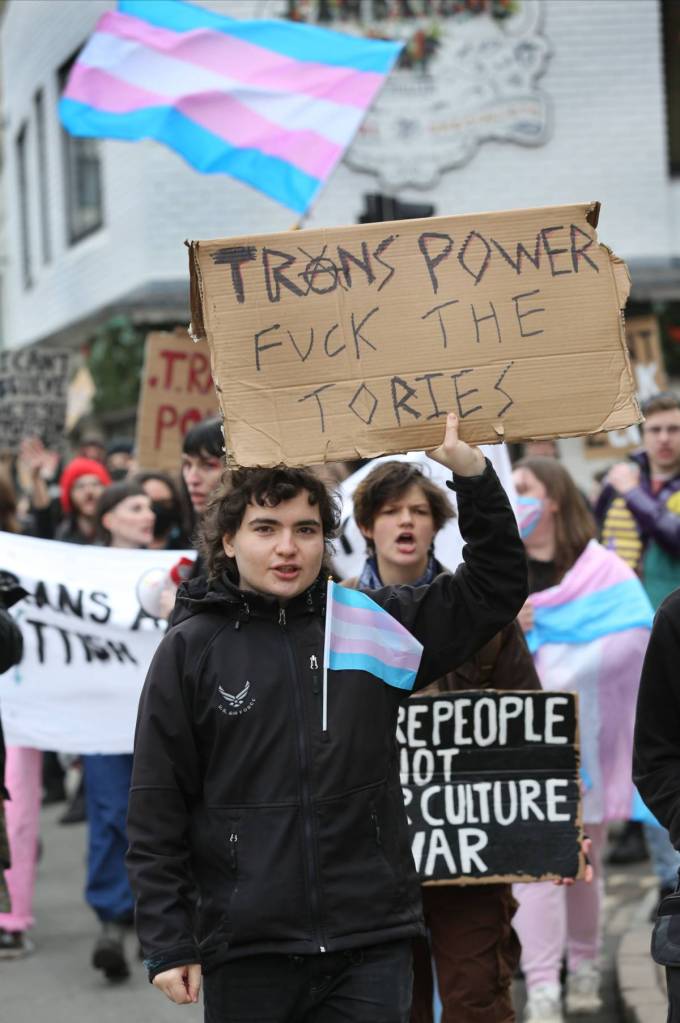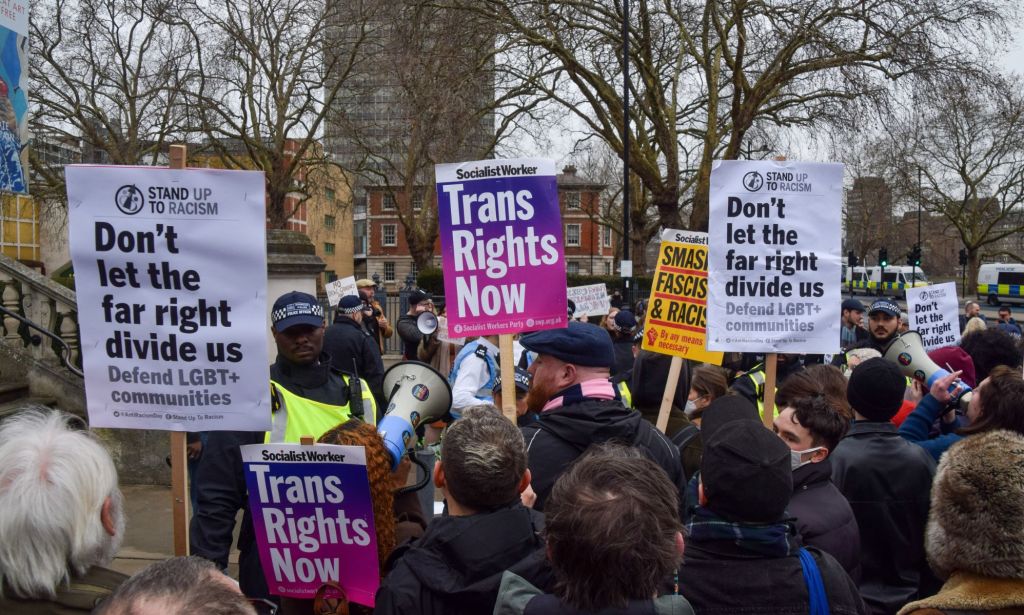Trans activists horrified as UK government considers making ‘sex’ mean ‘biological sex’

Kemi Badenoch asked EHRC chair Kishwer Falkner for advice on redefining sex. (Getty)
Trans advocates are incensed after the Equality Human Rights Commission (EHRC) laid out how amending the Equality Act to make sex mean biological sex could impact trans rights.
Equalities minister Kemi Badenoch wrote to the EHRC, the UK’s human rights watchdog, in February asking for its advice on what she described as a “technical and contested area of law” – how the Equality Act defines sex.
In a response published Tuesday (4 April), the EHRC said changing the Equality Act to amend the definition of sex to “biological sex” could result in “greater legal clarity” around single-sex spaces, excluding “trans women from women’s sport” and so-called “freedom of association for lesbians and gay men”, and “therefore merits further consideration”.
It also outlined areas where such a move would be “ambiguous or disadvantageous”, namely that it would allow trans men to bring forward the kind of equal pay or sex discrimination complaints reserved for women.
The letter is merely advice and doesn’t change anything. But it prompted outrage from LGBTQ+ and trans advocates, who said they were disappointed to see the EHRC once again showing hostility towards the trans community.
Helen Belcher, chair of TransActual, said the EHRC letter seemed to be indicating that the watchdog is “keen to assist in the redefinition” of the word “woman” – which has been “understood to include trans women for many, many years” – in a move “driven by political desire and manufactured fear more than any systematic evidence”.
“Our challenge to the increasingly misnamed EHRC and [Kemi Badeoch] is: why it is necessary now to try to redefine ‘woman’ to exclude trans women (and include trans men) when there is no evidence of problems actually caused by the understanding that has existed for decades?” Belcher said.

“By insinuating in its previous advice that organisations should exclude trans people from single-sex services and spaces, and now proposing that parliament actively considers effectively removing trans people from sex-based protections under the Equality Act, the EHRC continues demonstrating its inability to fight for human rights for everybody.
“Trans people no longer seem to be people in their eyes. Our pains and struggles are seemingly irrelevant.”
Feminist and trans rights activist Katy Montgomerie told PinkNews that she was horrified and “instantly had a panic attack” when she read the EHRC letter while at work. She fears that if the definition of sex was restricted to exclude trans people from protections, it could have widespread ramifications on her day-to-day life.
“I couldn’t work,” she said. “I’ve just bought a house. I’d feel like I can’t live here. My friends are here, my family is here, my parents are getting older.
“Will they even be able to visit if I move to … Ireland or the Netherlands? What am I even gonna do?
“I just feel so isolated and totally powerless.”
It’s understood that the government is considering the advice but has made no decision.
Montgomerie fears however that the Tories, knowing “their time is limited”, could try to push forward with a change before the next general election, or add it to their manifesto.
Making matters worse, she said, Labour “isn’t doing anything” to oppose the Tories’ ongoing attacks on trans rights.

Cleo Madeleine, communications officer for Gendered Intelligence, said the letter is “alarming” and “gutting”, but is ultimately just advice.
She explained the amount of work that would need to be done to reform a piece of legislation like the Equality Act would be “absolutely enormous”.
“The key thing to take away from it now is that our rights and protections are the same as they were yesterday,” she said.
“This doesn’t change any of that, and I think it’s really important to bear that in mind because a lot of the damage that’s done by this non-statutory guidance is in terms of the impact on the community, the fear that it causes, the misunderstanding and misinformation that it causes.”
A government spokesperson told PinkNews that it “will consider” the EHRC’s advice “in the usual way”.
“We are committed to protecting women’s rights and the minister for women and equalities regularly seeks advice from the independent equality regulator as part of her role,” the spokesperson said.
A spokesperson for the Equality and Human Rights Commission said: “Our response to the minister for women and equalities’ request for advice, on the definition of the protected characteristic of sex in the Equality Act 2010, suggests that the UK Government carefully identify and consider the potential implications of this change.
“Should the UK government wish to pursue work in this area, we recommend detailed policy and legal analysis be undertaken, in compliance with the Public Sector Equality Duty and with due regard to any possible disadvantages for trans men and trans women. The government may also wish to undertake a broader consideration, including through consultation, of the societal changes that have occurred in this area and how we, as a nation, want to approach issues of sex and gender in the evolving context.
“We look forward to working with the government and others to find a way forward on these important issues, but recognise that these decisions sit with the UK government and UK parliament.
“These are complex and hotly contested areas of law and policy with strong vested interests on many sides. We regularly engage with a range of people who hold different views across all protected characteristics. We will continue to do so and value these discussions immensely.”

